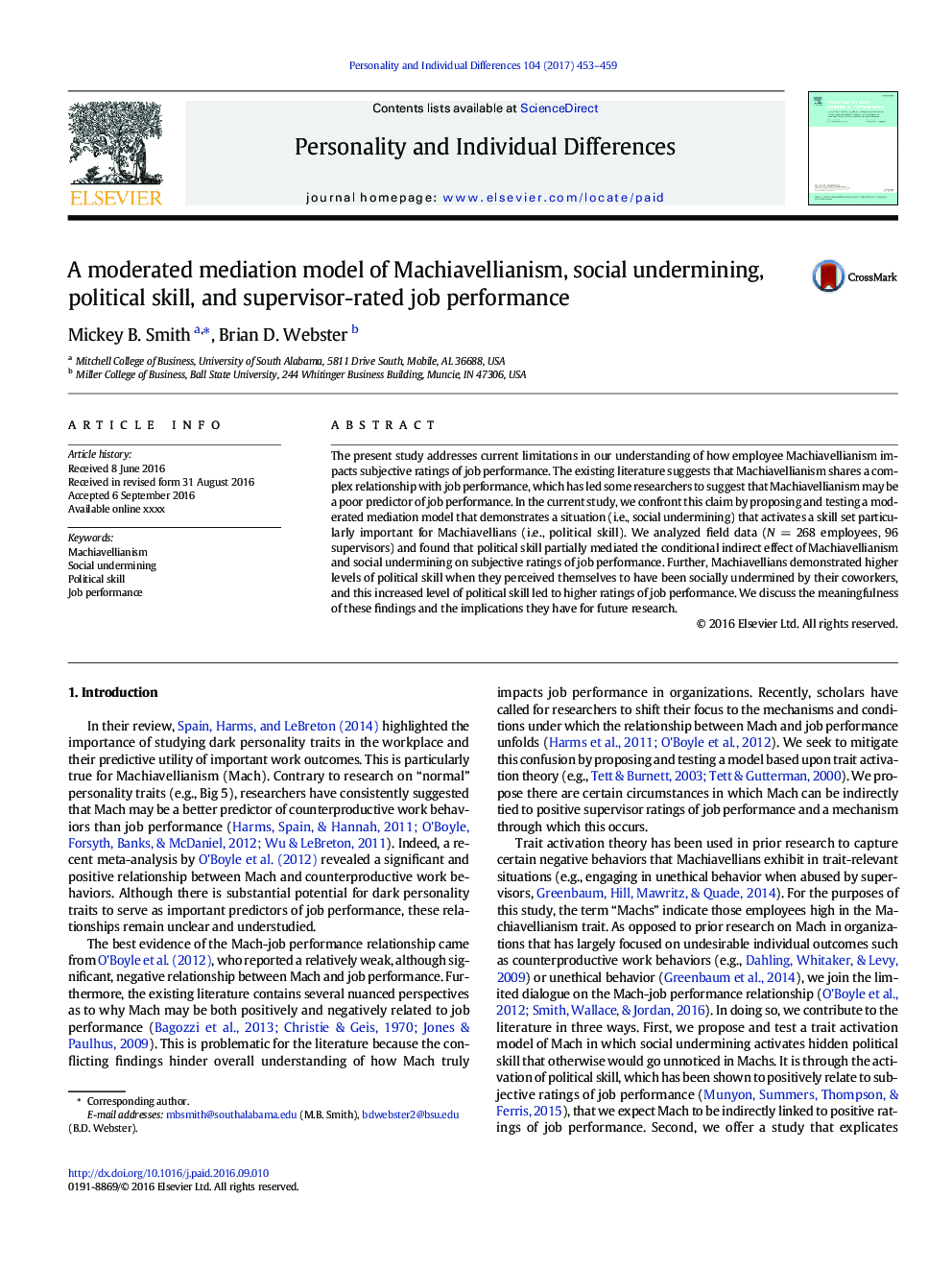| Article ID | Journal | Published Year | Pages | File Type |
|---|---|---|---|---|
| 7249543 | Personality and Individual Differences | 2017 | 7 Pages |
Abstract
The present study addresses current limitations in our understanding of how employee Machiavellianism impacts subjective ratings of job performance. The existing literature suggests that Machiavellianism shares a complex relationship with job performance, which has led some researchers to suggest that Machiavellianism may be a poor predictor of job performance. In the current study, we confront this claim by proposing and testing a moderated mediation model that demonstrates a situation (i.e., social undermining) that activates a skill set particularly important for Machiavellians (i.e., political skill). We analyzed field data (NÂ =Â 268 employees, 96 supervisors) and found that political skill partially mediated the conditional indirect effect of Machiavellianism and social undermining on subjective ratings of job performance. Further, Machiavellians demonstrated higher levels of political skill when they perceived themselves to have been socially undermined by their coworkers, and this increased level of political skill led to higher ratings of job performance. We discuss the meaningfulness of these findings and the implications they have for future research.
Related Topics
Life Sciences
Neuroscience
Behavioral Neuroscience
Authors
Mickey B. Smith, Brian D. Webster,
